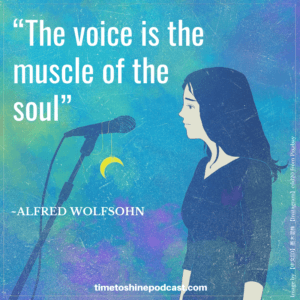
It feels so good to help people. There’s something incredibly satisfying about standing up for someone, encouraging them and supporting them in getting their needs met. It’s powerful to feel like we’re making a difference and that our lives have purpose and meaning. But there’s a tricky balance here because the goal isn’t supposed to be about being the hero in someone else’s story: It’s about supporting them to become their own hero.
Peer Specialists – like so many in the helping professions – sometimes struggle with wanting to rush in and fix things. Let’s make it better now! Sometimes that’s appropriate, but sometimes we need to pause and step back. We won’t always be there to support someone. What happens when they no longer have services? What happens when they find themselves in a situation where they have to speak out for themselves? Part of our role is to prepare them to advocate on their own behalf.
On the other hand, it could be that the person you’re working with has a strong voice and already knows they’re the hero in their own story but others won’t acknowledge it. It might be due to stigma, stereotyping, or discrimination. This is where we can lend any power and privilege we have towards amplifying their voice. Remember, if you are an employee, you have power that the person you’re serving doesn’t. How can you help get their voice heard?
There’s a wonderful quote from Alfred Wolfsohn: “the voice is the muscle of the soul.” Wolfsohn was a German singer who served in WWI as a stretcher-bearer. Suffering from PTSD, he continued to hear the screams of soldiers long after he was discharged. Unable to find relief, he created therapeutic vocal techniques that later became used in drama and music therapy (source). However you may think, or feel about the concept of soul, what I take from this is the healing power of Voice – and yes, I’m capitalizing it here for a reason. Voice is about recognizing the Truths that live within us and then expressing those Truths. Unfortunately, many marginalized people are discouraged from using their Voice, or even actively silenced and this has the opposite effect of healing: it can do great harm.
Our role as advocates for individuals is first to support them in finding and using their Voice. The next step is doing everything we can to ensure that their Voice is heard. When we do this we are making sure their rights are upheld, that obstacles to getting their needs met are removed and, quite possibly, helping to initiate a healing process. We get to stand by them as they become their own hero.
In my past employment, my strategy was simply to put my training to work in assisting probationers. The program in place as I saw it to be was to stifle their growth and ensure that their voice wasn’t heard. This became very challenging to me because I enjoy advocating with and for others to reach a higher conscious level of knowing that their recovery is possible and have proven results. The worst of my engagements was seeing grown men cry because they feared being seen engaging with me to share job leads, receive other resources, and share their story of an extended probation. In my past experience in working with veterans, I had an opportunity to assist others in believing in themselves again. The hope I shared with them is what was shared with me to gain a level of resilience, create an action plan, and gained fortitude to move forward towards a more productive life. I have always been able to perceive the good in others, while sometimes struggling to see the good in myself. As I unite to show solidarity towards others, I shall grow resilient despite the challenges I face because I will press on with great fortitude. I’m a believer in “Recovery Is Possible” for others because it was possible for me. I will never allow the under minding of others to deter me in my training nor belief system. The recovered woman I’ve become shall continue to press onto a higher call.
Thank you for sharing your Voice here, Eloise. I appreciate all the work you’ve done, and continue to do. It takes courage to follow your calling and resilience to continue on your path, especially on those days when you’re feeling like you’ve been kicked down. Thank you for Showing Up and Being You!!
Thank you, Christina Carney because today I was feeling down trodden and decided to check out this page because I missed community connections today. Through my response, I had an opportunity to use my voice in sharing my story, beliefs, and I’m feeling good about it. It’s my belief that I am willing to work hard and wait for an outcome because I know its going to come. I BELIEVE!!!
Thank you for your support, encouragement, and trainings.
I would like to be connected for the website for the Community Connections this morning .
You can sign up for our announcements at http://www.viahope.org. Scroll to the bottom of the page and registered for our newsletter.